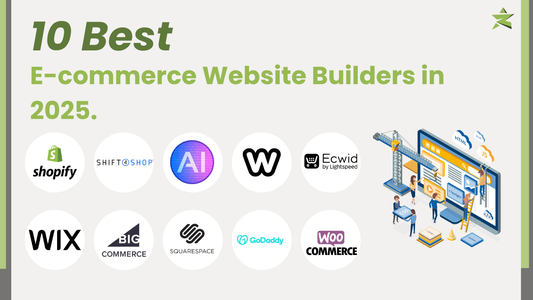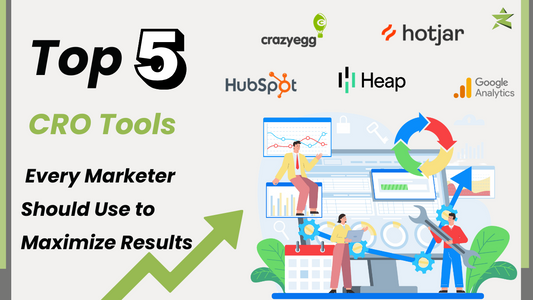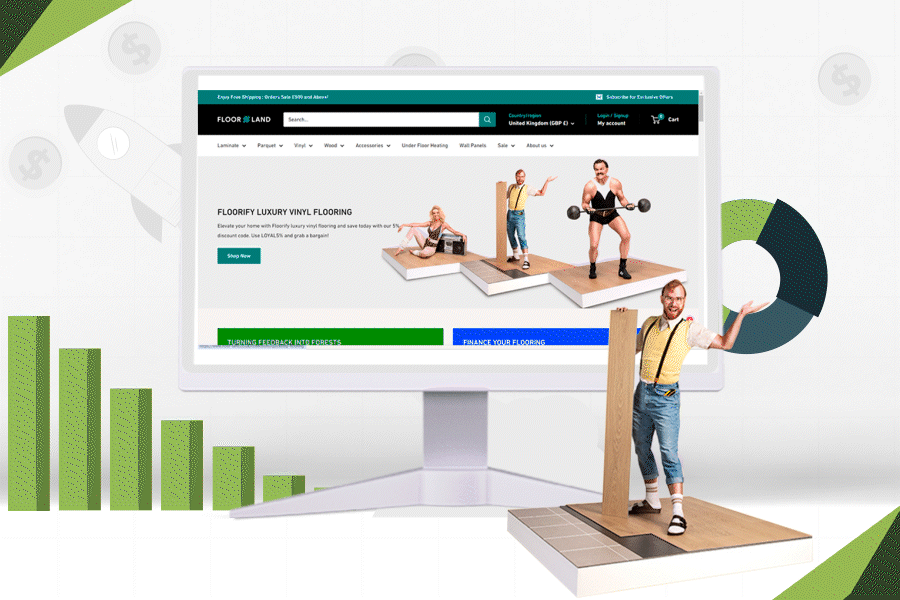To grow online sales effectively, selecting the right eCommerce website builder is key. With online retail expected to account for nearly 25% of all sales by 2026, even small businesses should consider having an online store. Here’s a guide to help you pick the best platform for your business based on functionality, ease of use, and affordability.
What to Look for in an eCommerce Platform:

- Ease of Use: Choose a platform that allows anyone, even those with minimal tech skills, to create a visually appealing and functional store.
- Versatility: Ensure the platform supports the sale of both physical and digital goods, handles international sales taxes, and integrates shipping solutions.
- Complete eCommerce Solution: Opt for a platform that helps manage the entire sales process—from inventory tracking to payment processing—without relying on external tools.
- Integrations: Look for systems that connect with other services you use, such as accounting or CRM software, through built-in features or apps like Zapier.
- Cost Transparency: Ensure the pricing is clear and scalable to accommodate growth without hidden fees.
Top Picks for Different Business Sizes:

- Square: Best for small businesses integrating online and offline sales, especially with its free plan and simple syncing between its POS system and online store.
- Ecwid by Lightspeed: Perfect for beginners looking for a free solution that scales affordably, supporting social media selling and inventory tracking as you grow.
- BigCommerce Essentials: Aimed at medium-sized businesses already moving a high volume of products. It's ideal for businesses with more complex needs like international tax management and multi-channel selling.
- WooCommerce for WordPress Users: The best option for businesses already using WordPress, allowing them to add eCommerce functionalities without starting from scratch.
Other Considerations:
- Budget: Start small but ensure the platform offers scalable options as your business grows.
- Feature Set: Evaluate the features most important to your business, like mobile responsiveness, shipping options, and integrations with social media.
- Support and Analytics: Ensure the platform offers sufficient customer support and analytics tools to help you track and optimize your sales performance.
By focusing on these factors, you can choose the best eCommerce platform to grow your small business, ensuring that it meets both your current and future needs.
The content you've provided outlines the key aspects to consider when selecting an eCommerce platform, particularly for small and medium-sized businesses (SMBs) that are looking to sell physical or digital products online. Below is a summary highlighting the critical points:
Growth of Online Sales and Need for SMBs to Go Digital
- By 2026, nearly a quarter of all retail sales will occur online, emphasizing the importance for small businesses to establish an online presence.
- Modern eCommerce website builders make it easy for small business owners to quickly set up a web store with minimal technical skills.
Key Features for SMB eCommerce Platforms:
- Ease of Use:
- The platform should allow non-technical users to create responsive and modern stores without needing advanced design or coding skills.
- Product Flexibility:
- Businesses should be able to sell a mix of physical and digital products, manage taxes, and handle shipping, including international orders.
- Full-Service Solutions:
- The platform must handle all aspects of eCommerce, including inventory management, orders, shipping, and payments.
- Integrations:
- The ability to integrate with accounting software, CRM, and other business tools is essential.
- Affordable Pricing:
- Clear and affordable pricing plans are crucial, as SMBs often don't have large budgets for eCommerce software.
Evaluation and Testing Process:
- Each platform was evaluated by setting up an actual online store, adding products, and testing features for usability, affordability, and scalability.
Key Considerations When Choosing an eCommerce Platform:
- Budget: Start with a lower-tier plan and ensure that higher-tier plans will meet future needs.
- Features: Identify dealbreaker features and ensure the platform provides them.
- Ease of Use: Consider the platform's user interface and how comfortable you feel navigating it.
- Support: Evaluate the support options and your comfort level with troubleshooting.
- Analytics: Ensure the platform offers robust analytics to help you make data-driven decisions.
Recommended eCommerce Platforms:
- Square:
- Best for integrating offline and online businesses seamlessly, especially with Square POS systems.
- Ecwid by Lightspeed:
- Best for businesses looking to start for free and gradually scale. The free plan allows up to five products and paid plans start at $19/month.
- BigCommerce Essentials:
- Best for businesses with a higher sales volume, offering comprehensive features but with more expensive themes.
- WooCommerce:
- Best for adding eCommerce functionality to an existing WordPress site.










